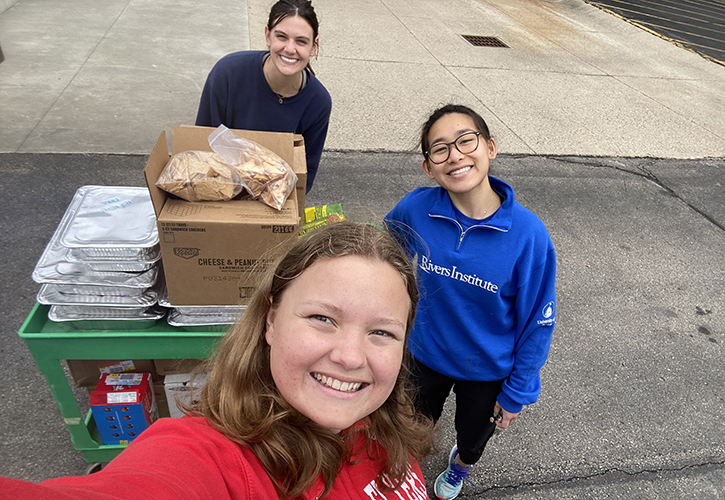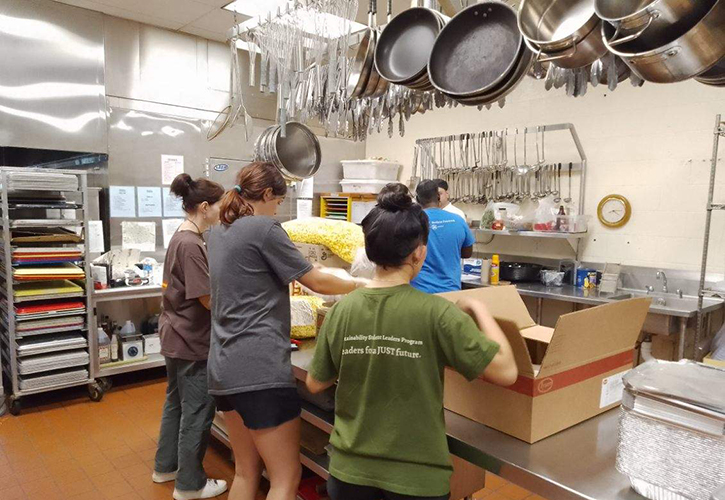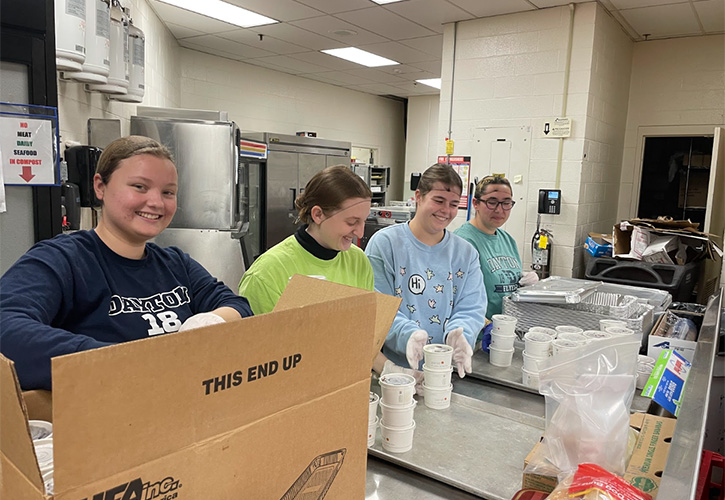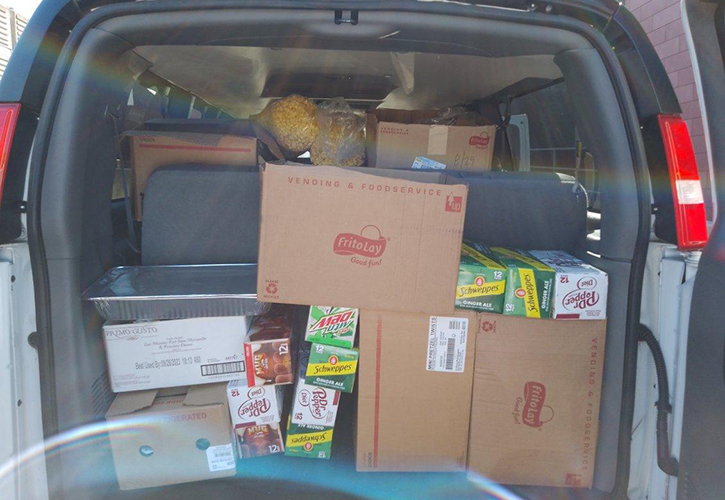Hanley Sustainability Institute

Dining goals in action at UD handled by Food Recovery Network
By Libby Bornhorst
Have you ever been on campus, maybe at a dining hall or an event where food was provided, and noticed how much food is wasted? Perfectly good food gets thrown out a lot, especially on the University of Dayton campus. In 2011, a group of UD students came up with a solution Dayton has been utilizing since last year.
The Food Recovery Network was created as a way to connect excess food from universities to people experiencing food insecurity. Volunteers are food safety trained, and then go to different dining halls or other catered events to collect the excess food which is then donated wherever there’s a need. The organization has hundreds of branches at colleges across America, where, collectively, over a million pounds of food have been donated.

The University of Dayton recently reinstated its branch of the Food Recovery Network. In just one year, it has collected over 2,000 pounds of food. Currently the program focuses on catering services with excess food from events that the University hosts. In the newly launched Sustainability Goals, Dining Services has named food recovery a priority, stating, "increase food recovery; reduce food waste."
Food waste is a huge problem on college campuses and Food Recovery is a large part of the solution to achieve zero food waste from pre-consumer production by 2027.

Diverting food waste is also a great way to limit CO2 (carbon dioxide) production. When food ends up rotting in landfills, as opposed to getting eaten or composted, massive amounts of CO2 are released. Food waste alone produces 170 million metric tons of carbon dioxide a year. That goes to show the many different aspects of sustainability, the impact of the Food Recovery Network and why it's such an important part of UD’s sustainability goals.
If you're interested in getting involved with these efforts, the Food Recovery Network is always looking for volunteers.

